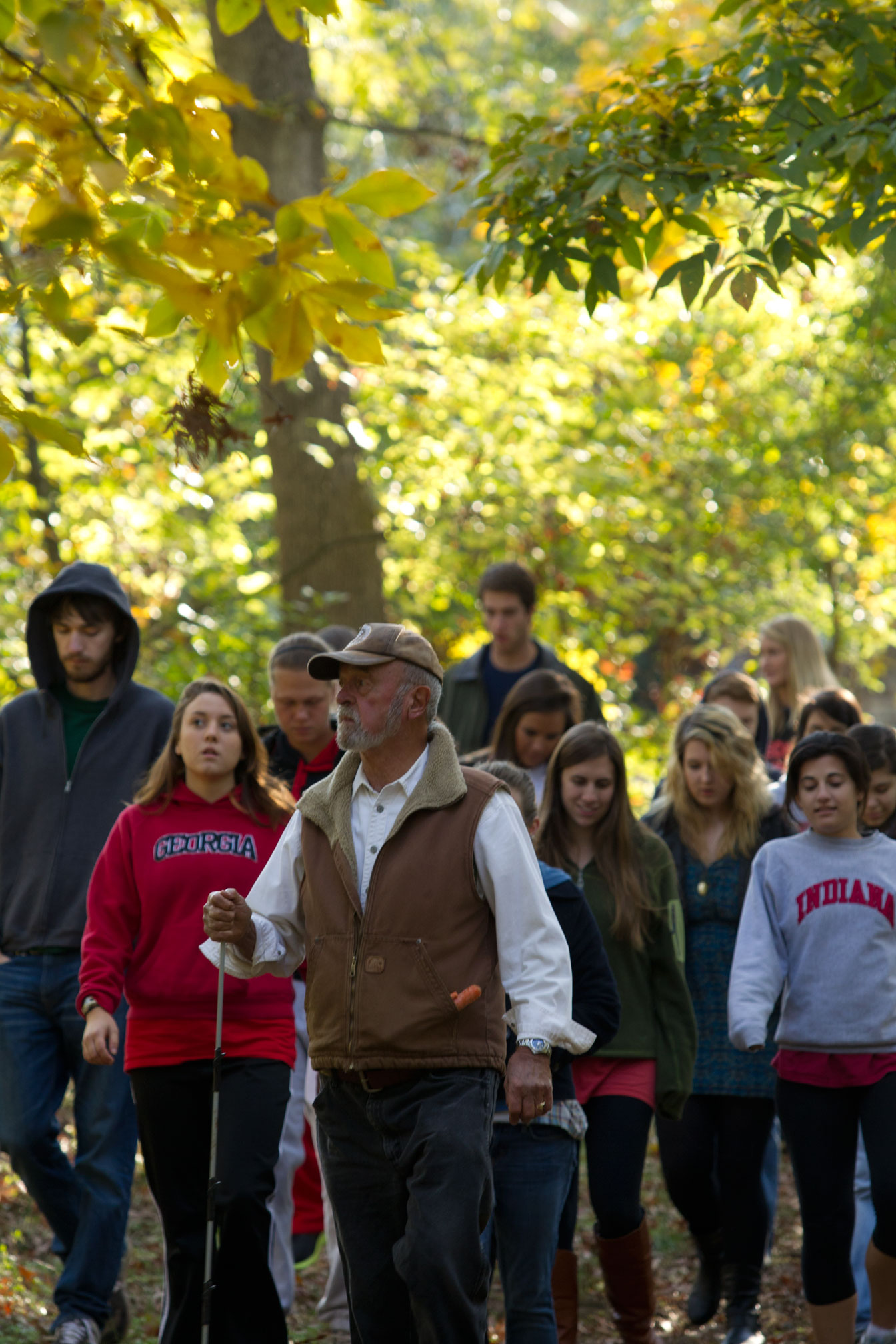Athens, Ga. – Carl F. Jordan, a senior research scientist emeritus in the University of Georgia Odum School of Ecology, will present a seminar on his new book, “An Ecosystem Approach to Sustainable Agriculture: Energy Use Efficiency in the American South,” on Nov. 12 at 4 p.m. in the ecology auditorium.
Following his talk, Jordan will be joined by three of his former graduate students—Robert Buschbacher, associate in tropical forestry in the Amazon Conservation Leadership Initiative at the University of Florida; Krista Jacobsen, assistant professor in the College of Agriculture at the University of Kentucky; and Justin Ellis, executive director of the Soque River Watershed Association in Clarkesville—for a conversation about the major themes he and his students have explored, and continue to explore, over the course of his career.
A reception will follow the discussion at 6 p.m. in the ecology lobby.
Jordan, who retired in 2009 after more than 30 years at UGA, began his career researching the impacts of agriculture and forestry on ecosystems around the world. In 1993, he purchased a 100-acre former cotton farm on the outskirts of Athens, which he has used as a living laboratory to develop and teach sustainable farming principles and practices ever since. Much of the information in his new book is based on the research conducted at his Spring Valley EcoFarms.
“Over the years one of the hallmarks of ecology at UGA has been to set bold new ideas that often are perceived as ahead of their time,” said Odum School Dean John Gittleman. “Like the ecosystem concept, Carl Jordan has looked at agricultural systems not only from an anthropocentric point of view but also at how farmland can enhance and stabilize biodiversity. No one thought this was possible. Carl’s work and that of his students have shown it can be done.”
Jordan was invited to write “An Ecosystem Approach to Sustainable Agriculture” by publisher Springer Verlag as the first in its new Environmental Challenges and Solutions series. He took the opportunity to pull together lessons learned over 40 years of his own research and that of the 35 graduate students he has mentored. The book is dedicated to them.
“Whenever I have a graduate student who’s about to finish, I ask myself, what have I learned from this student?” he said. “I feel that I learn as much from them as they’ve learned from me. This book has given me the opportunity to take all the ideas that I’ve gotten from my students and to elaborate on those and put it all together into a meaningful whole.”
The book takes a holistic approach rather than focusing on individual parts and problems of agricultural ecosystems.
“The book looks at properties of the entire agricultural ecosystem such as nutrient cycling efficiency and energy use efficiency,” Jordan said. “Because of the interactions between the parts of the system, the system properties cannot be predicted from studies of the individual components.”
Jordan explained the main message of the book is that agricultural sustainability can be improved by substituting the free services of nature for energy subsidies such as fertilizers and pesticides commonly used in industrial agriculture.
“One of the most important of these services is conserving and recycling of nutrients by the community of soil microorganisms,” he said. “This is accomplished by restoring the soil organic matter upon which these communities feed. Another is the control of pest insects by beneficial insects, accomplished by promoting habitat for the beneficial (insects).”
Those are ideas put into practice at Spring Valley EcoFarms, where Jordan continues to research and teach.
“Continuing to work at Spring Valley is what keeps the ideas coming,” he said. “With every class that comes through, I get a different idea and keep on working. If I ever write another edition of this book, I already have some new ones to incorporate.”
For more information about the Odum School of Ecology, see www.ecology.uga.edu. For more information about Spring Valley EcoFarms, see www.springvalleyecofarms.org.


